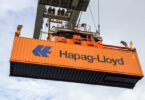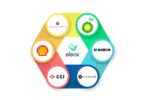Today at the Consensus conference Koch and Georgia Pacific outlined their work with Deloitte on building an industry-led blockchain for intellectual property (IP).
The current system
First, they outlined the problem. If you imagine trying to sell a car or home without knowing the previous owner, how can you be sure of the title? This is more-or-less the state of IP today.
If you send documents to most Intellectual Property offices, like a patent office, they will record whatever you send them. This happens whether or not you’re the true owner of the IP. Hence when you sell or license IP, it’s hard to do a reverse chain of title search, though it can provide some comfort.
As a result of this uncertainty, when it comes to contracts, there’s a lot of legal ’embedded insurance’. This means clauses for warranties, earn outs, liquidate damages and much more.
Reconciliation in the IP space is non-existent, it’s just not set up for it. The problems arise when trying to pledge intellectual property for a loan, or license it, sell it, and especially for mergers and acquisition transactions.
The solution
The data is at our disposal. For new IP we know the inventor, inventor’s employer, owner and IP assets. To get it working on a blockchain mainly requires repurposing the system.
It will introduce efficiency, accuracy, transparency and a much-improved system. Because of the removal of friction, the group believes there will be new insights.
So the first set of benefits will impact cost. Particularly legal fees should reduce for due diligence, and there should be less need for ’embedded insurance’ in contracts.
On the flipside, there will be revenue opportunities. Most licenses are fixed prices. If a product has a raw material where the price fluctuates significantly, the license could become too expensive. By allowing a license fee to float based on external data, a smart contract can enable licenses that would otherwise not be viable.
The network
The blockchain solution covers all types of intellectual property. Currently, they have a small consortium, and they plan to keep it reasonably small for a while before opening it up to more players.






